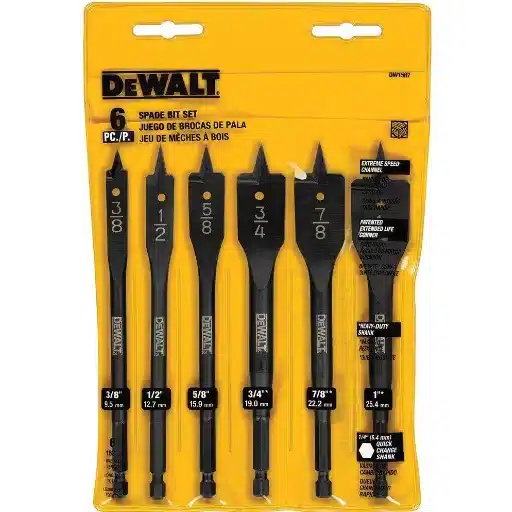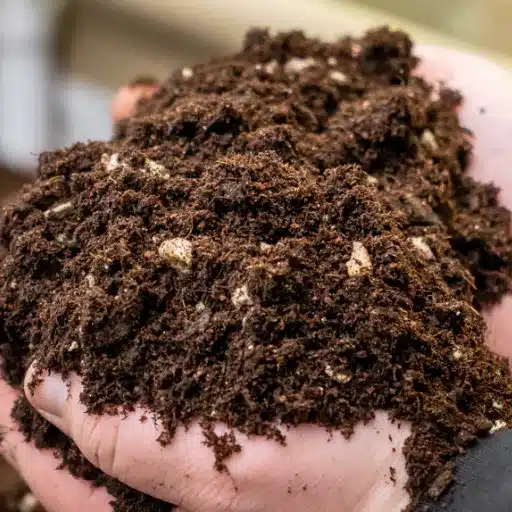Do you have lots of jars, drawers, or even pockets filled with loose change? The easiest thing can be to put coins aside and forget all about them, but what if there was a method by which you could use some of this pocket change for something more usable, giving you cash you can spend anytime? Coinstar is that simple and almost magical solution – the more convenient way to find time to declutter your home with some spare coins and make money. This article gives you an insight into how Coinstar machines work, the benefits of the machines, and tips on how to use them to get the most out of your experiences. So, whether you are jumping headfirst into coin counting or just curious about how to turn loose change into hard-earned savings, read along and find out why a Coinstar machine could become your new best friend for handling coins.
Understanding the Coinstar Machine
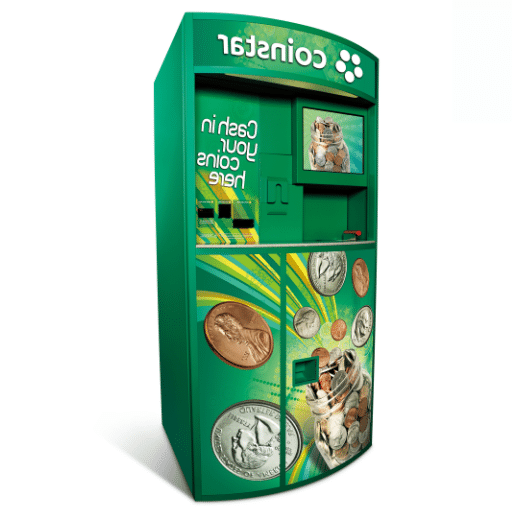
Coinstar machines are self-service kiosks that count your loose change fast and efficiently for you. You pour in the loose change, and the machine will sort and count automatically. You can then redeem the value by voucher for cash, an eGift card, or donate it to charity. Coinstar charges fees for cash redemption; however, redemption in eGift cards or donations can offer a fee waiver. Being placed mostly at grocery stores and retail outlets, they present a convenient opportunity to turn your spare change into usable funds.
What is a Coinstar Kiosk Machine?
A Coinstar kiosk offers the option to exchange loose change into cash, eGift cards, or donations to charitable causes, typically located within supermarkets or retail shops to provide convenience to customers.
How Does a Coinstar Machine Work?
Coinstar machines are a straightforward method that conveniently allows you to convert change into usable funds. This is how the process works:
- Locate a Coinstar Machine
First things first: find a Coinstar kiosk in your area. They are typically located within the confines of larger supermarkets, grocery stores, or retail establishments.
- Sort Your Coins
It is advisable to remove any non-coin objects (such as paper clips or buttons) before heading to the machine. The machine only accepts genuine U.S. coins and rejects all else.
- Load Your Coins into the Machine
Place the coins into the tray provided at the kiosk. The machine will then scan and sort your coins without your interference. From the capacity to count almost hundreds of coins per minute, Coinstar machines save you time over manual counting.
- Choose Your Preferred Option
After the counting is done, the machine will display the total value of the coins, along with these options:
- Cash Voucher: Print a voucher redeemable for cash at the store’s customer service desk. (Usually, Coinstar charges a fee of 11.9% of the total amount for this service.)
- eGift Card: Fee-free eGift card to renowned retailers such as Amazon, Starbucks, or Apple.
- Charitable Donation: Donate your coins directly to a nonprofit partner through the machine at no additional fee.
- Complete the Transaction
Tap the preferred option using the touchscreen and follow the instructions on the screen. You may need to provide additional information, such as your email address, if you choose an eGift card or donation.
Coinstar Fee and Alternatives
Now, bear in mind that Coinstar takes an established fee of 11.9% for cash redemption in the U.S. (a slight variation depending on location). But assuming you are considering alternatives that waive all fees, gift cards and charitable contributions are avenues worth considering.
Coinstar facilitates the processing of billions of coins every year, just for the publicity of being an option and a decent choice. As reported lately, almost 90% of Americans are said to have a Coinstar within a 5-mile radius; this Treasure Trove is nearly too big not to be caught with your change.
The Technology Behind Coin Counting
Coin counting machines employ advanced technology to preserve accuracy and efficiency. The key elements and processes in coin counting include:
- Coin Recognition Sensors
They are fast and identify coins according to their size, weight, and metallic content. This scanning by the machine allows distinguishing genuine coins from foreign objects or counterfeit currency.
- Sorting Mechanism
A sorting mechanism separates coins into denominations. This discriminates the coins correctly to be counted for each type.
- Precision Rollers and Discs
Inside the machine, rollers and discs guide the coins smoothly through the counting process. The designs minimize jamming problems, thereby allowing for operational consistency.
- Rejection System
This rejection system detects and ejects foreign objects or damaged coins, thereby maintaining the reliability of the counting process and allowing the machine to operate without further issues.
- Digital Display and Reporting
A modern machine provides a digital interface with live totals and summaries. Some machines also offer detailed transaction reports to enhance user confidence and transparency.
It is thanks to these technologies cooperating so swiftly and precisely in the processing of thousands of coins that a modern coin counter can be called an engineering marvel.
Benefits of Using a Coinstar Machine
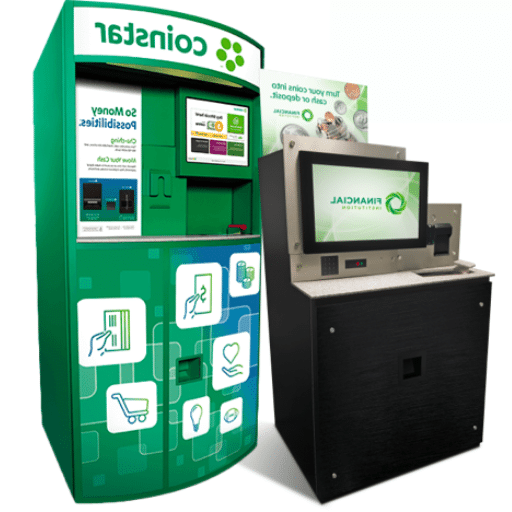
|
Key Point |
Description |
|---|---|
|
Convenience |
Located in grocery stores for easy access. |
|
Time-Saving |
Quickly counts coins, saving manual effort. |
|
No Bank Account Needed |
Converts coins without requiring a bank account. |
|
Immediate Cash |
Provides cash instantly after coin counting. |
|
Gift Card Options |
Exchange coins for gift cards to popular retailers. |
|
Charitable Donations |
Donate directly to non-profits via the machine. |
|
Extended Hours |
Available beyond typical banking hours. |
|
Avoid Bank Restrictions |
No limits or policies like some banks impose. |
|
Crypto Purchase Option |
Buy cryptocurrency through Coinstar kiosks. |
|
Self-Service |
User-friendly interface for independent transactions. |
Convenience of Coin Sorting
For sorting and counting coins, Coinstar offers a beneficial convenience. It saves users time and labor by automating the tedious process of manual counting. Here are five reasons why Coinstar aids in coin sorting:
- Speed and Efficiency
In large quantities of coins, Coinstar can count them in a matter of minutes, which is incredibly faster than any manual method. If one runs a business burdened with dealing with a large amount of change or simply someone carrying that burden, they would truly benefit from this.
- Accurate Counting of Coins
These machines ensure exact counting through the use of technology, which is far removed from human influence, providing a set of results with the highest reliability.
- No More Manual Sorting
The user need not worry about separating coins by denomination; Coinstar machines smoothly sort mixed coins.
- Cash or E-Gifts and Cards
The other mode of conversion refers to converting into cash by the Coinstar machine or converting into an e-gift card by the user from popular retailers, thus providing flexibility and extra value.
- Widespread Availability
Coinstar machines are located in grocery stores and other convenient places, allowing anyone to use the service with minimal inconvenience.
How to Turn Loose Change into Cash in 2023
From tossing loose change into a money, it has become easy with Coinstar and other modern solutions. The latest count indicates that approximately 20,000 Coinstar machines are in operation worldwide, with the majority located in grocery stores and other retail outlets, making it a very convenient option. People so inclined can have their coins converted into cash for a fee, which typically ranges from 10% to 12% of the total coin value. Alternatively, you can bypass the fees by converting the coins into an e-gift card from a large retailer, such as Amazon or Starbucks, at no additional cost.
Certain local banks or credit unions may still allow their members to deposit coins free of charge. The digital payment arena is also advancing with the introduction of new apps that enable deposited coins to be deposited digitally or facilitate easy coin exchanges. A compelling statistic obtained through a recent Google search emphasizes the astonishing fact that approximately $62 million worth of loose change goes unclaimed each year in America, highlighting the lucrative potential in the coin collection and conversion business. Coinstar can be an easy route for turning stagnant loose change into something handy, just as the banks can.
Alternative Options for Coin Counting
If you require alternative methods to count and convert your spare change, there are several options beyond traditional coin-counting machines. Let us review five practical options:
- Bank Coin Counting Services
A few banks offer free or low-cost coin-counting services to their clients. For instance, a credit union or community bank may allow members to deposit loose change into their accounts at no further cost. Larger banks may offer coin-sorting machines in their branches, but this service is sometimes limited to account holders.
- Coinstar Machines
Coinstar remains another viable option if you can’t access a coin-counting service at your bank. Placed in supermarkets and other retail outlets, these machines typically feature coin redemption options for cash or store credits. Coinstar charges 11.9% for cash retrieval; if you redeem for an e-gift card, the fee can be waived.
- Rolling Coins by Yourself
If you want to count and organize your spare change, rolling it for a small fee using paper coin wrappers is one of the simplest methods to do so. Most stores sell preprinted wrappers for this purpose, and banks may also provide them. Once the coins are rolled, it’s possible to take those rolls to a bank for deposit or exchange.
- Mobile Apps for Deposit of Cash
With mobile applications such as Venmo, PayPal, or other banking apps, users can deposit cash virtually by integrating sensors with compatible kiosks or ATMs. While this does not equate to counting coins physically, an app can serve as an intermediate step, making monetizing converted change less tedious.
- Donation to Charity
Another way you can get rid of your loose change is to donate it to charities and nonprofit organizations. Several grocery stores and retail chains have installed coin donation kiosks at the request of charitable causes. This is a lovely way to dispose of your spare change without worrying about counting fees or clumsy counting processes.
These special options will certainly help you manage your coins more effectively while reducing the ever-growing issue of loose change. Every option has its merits when weighed against personal preference, convenience, or even just the cost involved.
Costs Associated with Coinstar Services
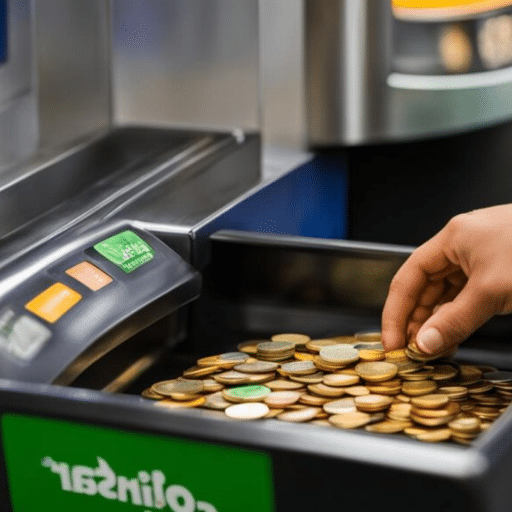
It is essential to be aware of all fees associated with cashing in coinage and converting gift cards when using Coinstar’s services. Coinstar has a reputation for processing cash transactions at a rate of 12.5 percent, with a transaction fee of $0.50, in the United States. If one were to exchange, say $50 of coins, a process fee of $6.75 would be levied; therefore, cash would be returned only for $43.25.
However, that is not the end; Coinstar offers an alternative that does not require any cash-out fees. You exchange your coins for an electronic gift card or eCertificate from partnered brands, such as Amazon, Starbucks, or Walmart, for the full value without incurring any fees.
Please note that charges are subject to change depending on your location and any available promotional offers. Some Coinstar kiosks may also allow the direct donation of coins to charities, which is yet another prohibited fee option. While convenient, coin conversion at Coinstar is likely to incur higher costs than other methods; therefore, it is best first to evaluate your needs and preferences.
Understanding the Fees
Coinstar fees are typically based on a percentage of the total amount of coins that are counted. The range generally spans from 10.9% to almost 12.5%, depending on the location and policies for the particular kiosk.
Comparing Costs with Other Coin Counters
|
Service |
Fee Structure |
Key Features |
|---|---|---|
|
Coinstar |
12.9% + $0.99 per transaction |
Convenient, eGift cards have no fees. |
|
Banks (Customers) |
Free for account holders |
Requires rolled coins in most cases. |
|
Banks (Non-Customers) |
5%-10% fee or not available |
Limited access for non-account holders. |
|
Credit Unions |
Free for members, small fee for non-members |
Coin machines are available at some branches. |
|
Publix Machines |
~10% fee |
Available in select grocery stores. |
|
Self-Checkout |
Free |
Use coins directly for purchases. |
|
Home Coin Counters |
One-time cost ($250-$600+) |
No ongoing fees, complete control. |
Is It Worth the Investment?
For my needs, it would sometimes be appropriate to pad the ever-decreasing Coinstar. If I were pressed for time or if bank access was difficult for me, the convenience of having a Coinstar machine nearby could often be worth the fees. If I have that time and energy, though, I just roll the coins myself or seek out other free ways that are better for me. It just comes down to cost and convenience balanced against my needs.
Tips for Using a Coinstar Machine Effectively
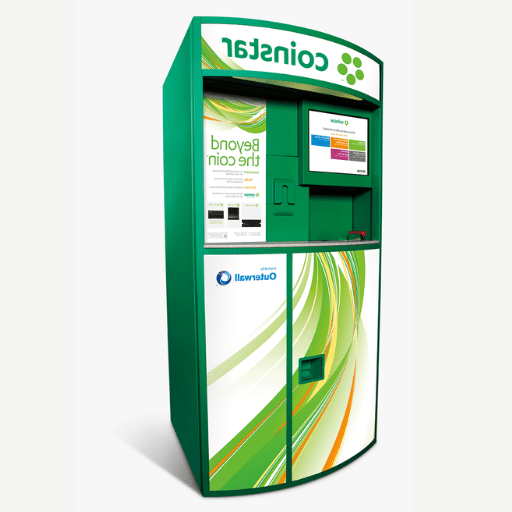
- Sort Your Coins for Coinstar
Separate the coins to remove foreign currency, damaged coins, or non-coin items, such as buttons or rubbish. Coinstar machines don’t accept these items; therefore, sorting them beforehand will save you precious time at the kiosk.
- Know Your Fees
While going to the machine, check the posted fee percentage for cash payouts. Typically, Coinstar charges a fee of 11.9%, but this rate varies by location. It’s good to know the fees and decide whether the option is worth it for you.
- Choose Gift Card Options
To avoid fees, consider selecting the gift card option. Many Coinstar machines offer eGift cards for various stores, such as Amazon, Starbucks, and Home Depot, without any fees, ensuring you retain the full value of your coins.
- Make Sure Coins Are Dry and Clean
Ensure the coins are dry and clean before placing them in the machine. Dirt or moisture may cause it to jam, resulting in either a delay or, worse, a malfunction of the machine.
- Know the Maximum Capacity
The Coinstar machine can usually accept up to $3,000 worth of coins in one load; however, this limit should be confirmed at your location, so you can split the load based on multiple trips or multiple locations if you need to carry more.
Preparing Your Coins for Counting
Proper preparation ensures an easy and efficient experience with Coinstar or similar coin-counting machines. The following steps and tips elaborate on how to prepare your coins:
- Sort Out Foreign Or Damaged Coins
Coin-counting machines will pass your standard currency. Dismiss foreign coins, tokens, or damaged currency that may cause errors or interruptions in the process. Official Coinstar recommendations state that foreign or bent coins can be rejected, which can slow the process.
- Separate Trash From Non-Coin Items
Small bits of debris, screws, buttons, or what-have-you mixed with your coins can block the machine. Ensuring that your mix is free of non-coin objects ensures smoother processing. Studies indicate that up to 5 percent of items loaded for counting may be rejected by machines due to the presence of foreign objects, which increases wait time and frustration.
- Roll or Bag Excessive Amounts Carefully
Coinstar machines can count coins for as much as $3,000; however, if you have a large amount of coins, it’s better to pre-sort them into small bags. Research shows that coins in smaller, manageable batches lessen the risk of machine overload and make it easier for attendants to resolve any issues quickly.
- Know the Total Approximate Value
It can be helpful to have a rough estimate of the total coin value before heading to the machine. This helps ensure that you don’t go over the limits and can keep a record of how much money you should be receiving. For example, if the goal is to cash out $1,000 in coins and the machine charges the standard 12 percent fee (which varies by location), you can expect to receive $880.
- Clean Your Coins
While it is not needed to put them in a full polish, cleaning away some of the heavier dirt or grime can improve the acceptance rate of your coins. Based on studies, machines may reject 8% more coins when excessively dirty or sticky with residue.
These preparations will help you save time, maximize acceptance rates, and enhance your overall experience with coin-counting machines. Whether you’re rolling in a few coins or processing a big stash, preparation makes for a smooth and easy transaction.
Best Practices for Using Coinstar Kiosks
- Sorting Your Coins
Go ahead and sort your coins before using the Coinstar machine, removing foreign currency, damaged coins, or any non-coin items like washers or tokens. Those items can confuse the machine during counting and lead to rejections.
- Cleaning Dirty Coins
Wiping coins that are coated with dirt or sticky residue should significantly reduce the chance of rejection. Studies have proven that cleaning coins can minimize rejection by up to 8%, thereby fast-tracking your transaction.
- Do Not Load
Add coins in small increments rather than dumping them all in at once. Overloading can cause the machine to jam or malfunction, and increase the count time or reject even more coins.
- Look for Machine Fees
Coinstar kiosks typically charge a standard service fee of approximately 11.9% for cash redemption. If you want to avoid the cost, consider the gift card or charity donation option, which is usually free.
- Off-Peak Visit
Arrive at the kiosk when it is not very busy to save on time and extra waiting on your part. Off-peak hours, such as early mornings and weekdays, provide a more dependable and smoother experience.
Maximizing Your Coin Cash-Out
- Sort and Prepare Your Coins
Sorted coins are a good way to guarantee a shorter wait time when using Coinstar or your bank. Coins rejected due to mixed-in foreign items have recently been causing delays in transactions, so sorting beforehand ensures a quick, hassle-free cash-out.
- Redeem for E-Gift Cards
Many Coinstar kiosks allow customers to redeem coins for e-gift cards at major retailers, including Amazon, Starbucks, and Walmart. This option usually comes without any additional fees, whereas with redemption for cash, users are often required to pay a service charge, saving up to 11.9%. For instance, if coins worth $50 are redeemed for cash, charges of $5.95 would apply, while e-gift cards have no such fees attached.
- Take Advantage of Bank Services
Several local banks and credit unions continue to offer free coin-counting services to their clients. As recent data shows, about 30 percent of financial institutions are still in the service, notably smaller, regional credit unions. Do call your banks ahead to inquire about their policies and procedures for depositing coins.
- Stay with Coin Contributing Trends
Do you know that Americans leave $15 billion in loose change unutilized per annum? Nearly $15 billion in coins remain dormant in American households annually, according to recent statistics. Having a jar or a designated place for coins in the house can add up to serious savings over time, hence enabling larger cash-outs later.
- Take Advantage of Loyalty Programs
Some retail locations with a coin kiosk may occasionally offer loyalty programs or promotions. For example, grocery stores could offer bonuses, such as triple reward points, for using Coinstar kiosks located within the store. Check these offers for more value during your transaction.
Through careful planning, avoiding exorbitant fees, and capitalizing on modern services, you can significantly boost the value of your coins, transforming what may feel like an insignificant amount into meaningful savings.
References
-
ScholarWorks at California State University: This source discusses the expansion and operations of Coinstar, including its role in processing coin currency. Link to source
-
Digital Commons at the University of Washington Tacoma: This presentation explores Outerwall, the parent company of Coinstar, and its technological innovations. Link to source
-
Huskie Commons at Northern Illinois University: This paper provides insights into Coinstar’s business model and its subsidiary operations. Link to source
Frequently Asked Questions (FAQ)
What is a Coinstar Machine?
A Coinstar machine is a self-service kiosk designed to quickly and efficiently sort and count coins. These machines accept various types of coins, including pennies, nickels, dimes, and quarters, and convert them into cash or gift cards. They are commonly found in retail locations such as supermarkets and banks, providing a convenient way for individuals to turn their loose change into usable currency.
How Do Coinstar Kiosks Work?
Using a Coinstar kiosk is simple. You toss your coins into the machine, which then automatically sorts and counts them. Once the coins have been counted, the machine displays the total value of the coins and offers options to redeem them for cash, a gift card, or a donation to charity. Coinstar’s machines are designed to streamline the process of handling large amounts of coins, making them a popular choice for those looking to get rid of spare change.
What Types of Coins Can Be Used in Coinstar Machines?
Coinstar machines accept all standard US coins, including pennies, nickels, dimes, and quarters. However, it’s important to note that some machines may not accept certain types of coins, such as foreign currency or damaged coins. Users can toss a jar of mixed coins into the machine, and it counts and sorts the coins by denomination.
Is There a Processing Fee for Using a Coinstar Machine?
Yes, Coinstar machines charge a processing fee for their coin-counting services, which typically ranges from 10% to 12% of the total value of coins. However, if you choose to receive an eGift card from select retailers, Coinstar often waives the service fee, allowing you to convert your coins without any additional cost.
Can I Donate My Coins at a Coinstar Kiosk?
Yes, Coinstar kiosks also offer a donation option. After your coins have been counted, you can choose to donate the total value to various charities directly through the machine. This feature provides a convenient way to support charitable organizations while turning your loose change into a positive contribution.
Where Can I Find Coinstar Kiosks?
Coinstar kiosks can be found at numerous retail outlets, including supermarkets, banks, and credit unions. These kiosks are strategically located to make it easy for customers to access coin-counting services. You can use the Coinstar website or app to find the nearest kiosk to you.
What Are the Advantages of Using Coinstar Machines?
The primary advantage of using a Coinstar machine is the convenience it offers. Users can quickly sort and count coins without needing manual counting or coin wrappers. Additionally, the option to redeem coins for cash, gift cards, or donations makes the service versatile and user-friendly. Coinstar’s machines are also automated, reducing the time spent on cash handling.
Are Coinstar Machines Safe from Counterfeit Coins?
Coinstar machines are designed to efficiently sort and count coins, including having features that help detect counterfeit coins. The machines include advanced technology to identify and reject any coins that do not meet the standard criteria for authentic currency, ensuring that users receive the correct value for their coins.
What Should I Do if My Coins Get Stuck in the Coinstar Machine?
If your coins get stuck in a Coinstar machine, it’s advisable to wait a moment as the machine may automatically release them. If the issue persists, refer to the machine’s customer service information or visit the Coinstar website for assistance. The support team can guide on resolving the problem and retrieving your coins.





